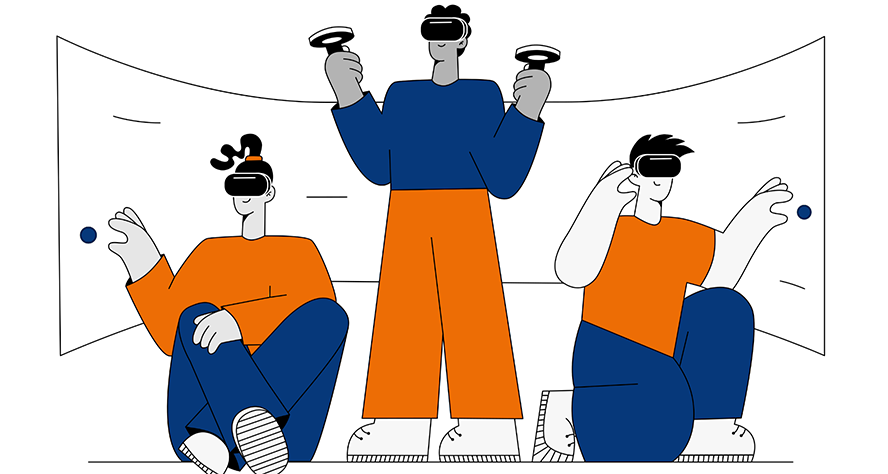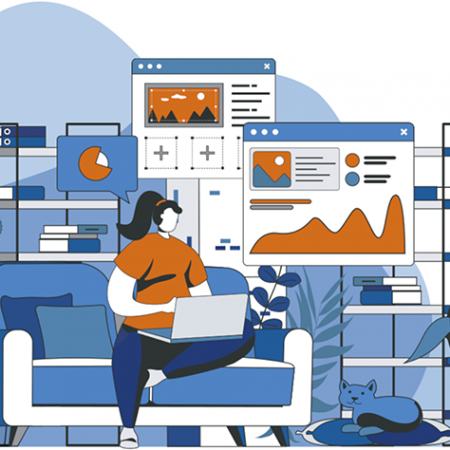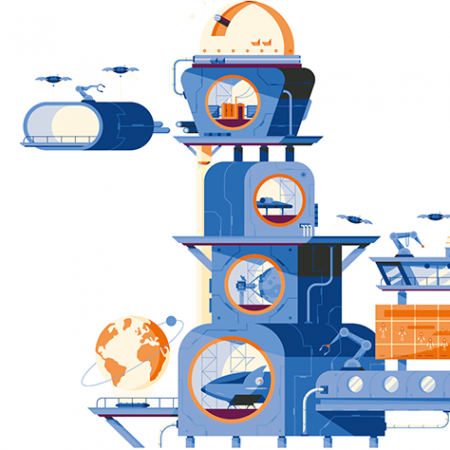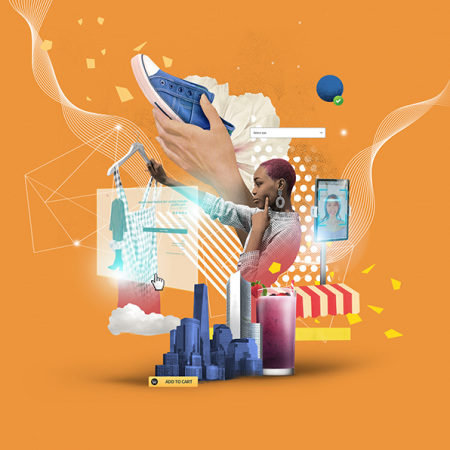Q. Simon, tell us about your experience with immersive technologies.
A. After a period as a software engineer in military R&D, I moved into the games industry, working at PlayStation, pioneering 3D gaming and virtual reality technologies. I’m now a consultant, including at HOST (the Home of Skills & Technology at Media City in Salford, UK), which is particularly active in the immersive space.
Q. This is a game-changing time with the rise of the metaverse. How would you define it?
A. The metaverse is a connected digital space. It can be a virtual space where everything is digital – this is virtual reality (VR). Or it can be a virtual layer overlaid on the real world, which is augmented reality (AR).
Q. For those who are new to it, how will people access the metaverse?
A. Our smartphones will be replaced by smart glasses as the metaverse develops. It makes more sense for notifications we get from our smartphones to be within our field of view. With 5G, we can deliver higher volumes of data to more people, and everything can be delivered by the cloud, so the glasses do not need powerful processors. The infrastructure is very much on the horizon so we can traverse the world with low-cost smart glasses.
Q. This will have interesting consequences for our sense of identity in this digital space.
A. Yes, I think we’ll have a different identity for traversing the metaverse and maybe it will be our avatar, the digital representation of ourselves.
Q. In this expanding world of the ‘phygital’, what’s your view on how this alters our need for ‘things’?
A. Once we have glasses on our faces, it no longer constrains things to be two-dimensional or a certain size. I could log into my work computer from a coffee shop, and not need my laptop as my smart glasses would put a laptop on the table in front of me.
Q. Retail and leisure is already experiential, what do you think the metaverse will add?
A. You might go to a VR experience that lets you feel like you’re in an action movie, for example, and they can add extra sensory things: the right smells, real heat. Not everyone will own an immersive set-up at home so will visit them on the high street, whether that be socially or to book in at a facility to view virtual properties.
Q. We’ve also seen digital ownership becoming highly valued, how do you see that playing out?
A. Children brought up with online experiences might actually rate buying a pair of trainers for their in-game character far more than if they had the trainers in the real world. Imagine those same children as adults with that understanding of the value of digital ownership.
Q. We’ve been thinking a lot about the impact on offices. What’s your vision for this?
A. Headsets on, our virtual offices will open up before us. Interestingly, the physical size of this space will depend on how much movement is needed in day-to-day life. If I work with cars, I might have a room that would give me a good degree of walk-around space. If I make toy robots, I would need a smaller physical space.
Q. In a world where technology is integrated into all areas of our lives, we need to reconcile the effect on our environment. What’s your take on the environmental impact?
A. Taking people’s workspaces and reducing them to something experienced through headsets reduces power consumption significantly. Couple that with cloud delivery and digital assets – a television will no longer be a physical item – then you effectively have the power of centralisation so data centres can be more efficient.
Q. The metaverse will require a new landscape of expertise. The games industry must be a first stop for skills.
A. Many of the businesses that are embracing immersive technology have gone to the games industry as they have been doing this type of work for 20 years. However, in the next few years, these skills will be the norm across businesses; people will almost forget its heritage to the games industry. It will just be real-time interactive technology.
Q. Finally, this is a whole new digital space so there must be a power play. Will someone own the metaverse?
A. There has definitely been a land grab. Microsoft moved early with its AR glasses, HoloLens, and Facebook renamed as Meta to immerse themselves in this space. It’s going to mirror the way that internet companies each had their little corner of the internet. It will become a collection – a xenoverse – of metaverses with no single winner. Either way, it’s going to be very influential. Soon, every business will be operating in some way in the metaverse.
Physical meets digital in the metaverse
10,000
Number of jobs Facebook plans to create in the EU over the next five years to help build its metaverse.
$41 billion
The size of the non-fungible token (NFT) market in 2021; digital tokens fixed in a blockchain that can represent real world items, and are key to commerce in the metaverse.
27.7 million
Number of players who attended Travis Scott’s 2020 concert live in online game Fortnite.
SEVEN
The number of trademark applications by Nike for ‘downloadable virtual goods’ under the Nike and Jordan brands, including shoes and apparel.
$68.7 billion
The amount that Microsoft is paying to acquire interactive entertainment developer Activision Blizzard, to provide the building blocks for its metaverse.



